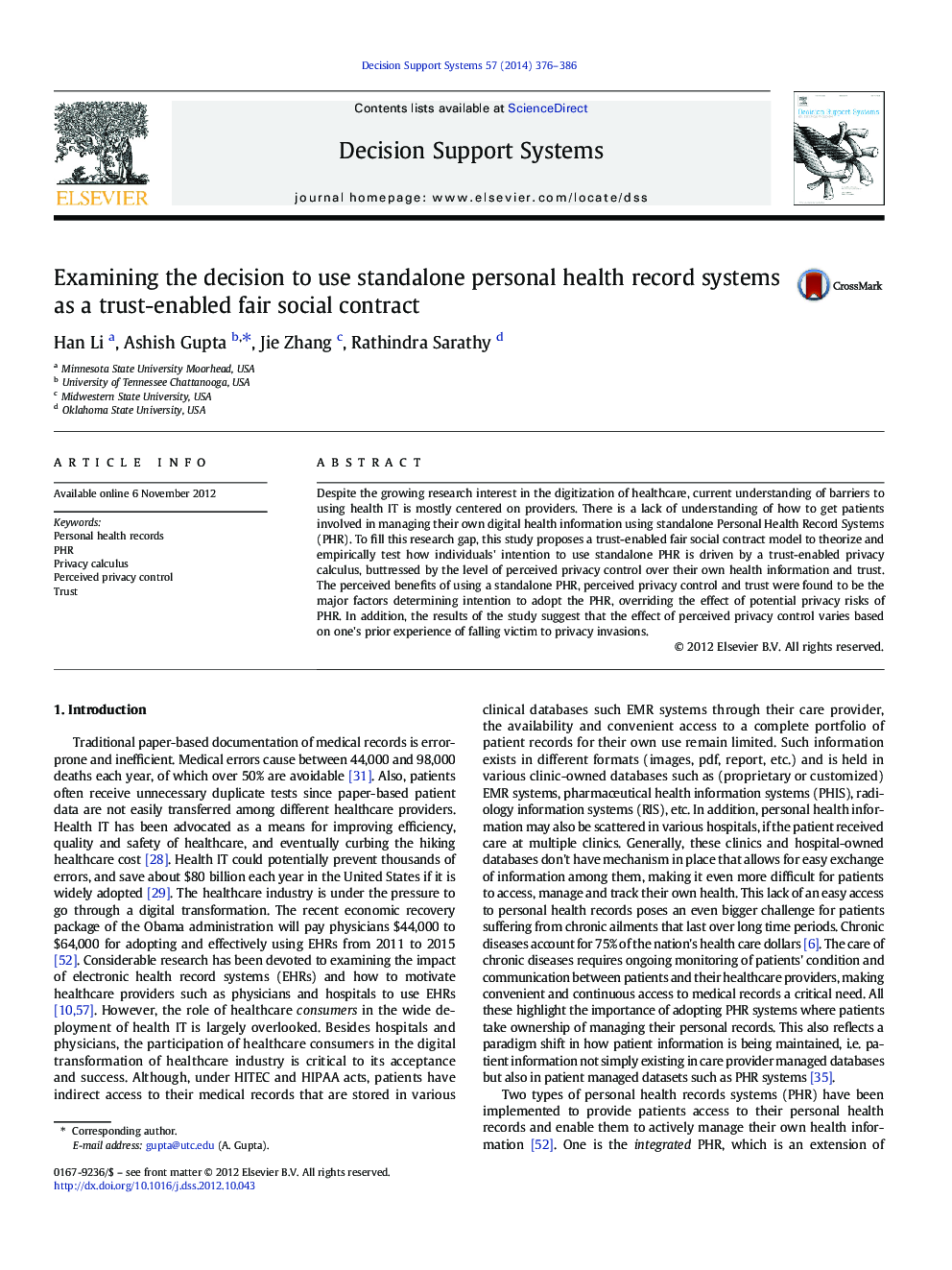| Article ID | Journal | Published Year | Pages | File Type |
|---|---|---|---|---|
| 552649 | Decision Support Systems | 2014 | 11 Pages |
Despite the growing research interest in the digitization of healthcare, current understanding of barriers to using health IT is mostly centered on providers. There is a lack of understanding of how to get patients involved in managing their own digital health information using standalone Personal Health Record Systems (PHR). To fill this research gap, this study proposes a trust-enabled fair social contract model to theorize and empirically test how individuals' intention to use standalone PHR is driven by a trust-enabled privacy calculus, buttressed by the level of perceived privacy control over their own health information and trust. The perceived benefits of using a standalone PHR, perceived privacy control and trust were found to be the major factors determining intention to adopt the PHR, overriding the effect of potential privacy risks of PHR. In addition, the results of the study suggest that the effect of perceived privacy control varies based on one's prior experience of falling victim to privacy invasions.
► PHR adoption decision is driven by a trust-enabled fair social contract. ► Trust belief is an important prerequisite for initial PHR adoption decision. ► Trust belief influences patients' perceived benefits and privacy risks. ► Perceived privacy control adjusts the effect of perceived benefits and privacy risks. ► The effect of perceived privacy control varies with privacy invasion experience.
